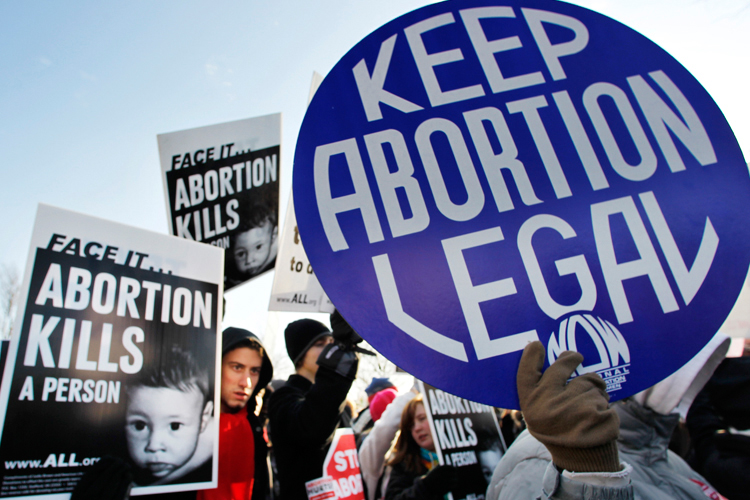North Dakota signed the nation’s most restrictive abortion ban into law on Tuesday, criminalizing the procedure as early as five or six weeks into pregnancy. Women’s reproductive rights advocates, medical professionals, legal experts and even some anti-choice organizations have denounced the new law as a violation of Roe v. Wade that is almost guaranteed to be declared unconstitutional and overturned.
But the six week abortion ban came fast on the heels of an Arkansas law restricting the procedure at 12 weeks and, as Planned Parenthood president Cecile Richards told the Washington Post, other states are following suit:
What we’re seeing is a couple of states where the most extreme right fringe has taken over these state legislatures. You have a state like North Dakota where the governor has now chosen to side with the extreme right wing over [the state’s] women.
These two states are outliers, but it is chilling to think that for women in America, your rights now depend on your Zip code. I’m hearing lots of outrage over the airwaves from women and men across the country, that this could happen in 2013…
We’ve got 42 states that have introduced legislation to reduce access to reproductive health care. It’s not only access to legal abortion but also access to a wide array of health care. Even in North Dakota, it’s not just [the six-week law], but they also passed a law to put a personhood amendment on the ballot. It’s interesting we’re seeing this after a neighboring state [South Dakota] did the same thing not so long ago, and yet was soundly defeated.
As anti-choice activists in state legislatures across the country continue to test the boundaries of the Constitution, the likelihood that one of these cases will find an audience with the Supreme Court grows. “I assume something will [go to the Supreme Court],” Richards told the Post.
North Dakota Gov. Jack conceded as much in his statement on signing the extreme abortion ban:
Although the likelihood of this measure surviving a court challenge remains in question, this bill is nevertheless a legitimate attempt by a state legislature to discover the boundaries of Roe v. Wade. Because the U.S. Supreme Court has allowed state restrictions on the performing of abortions and because the Supreme Court has never considered this precise restriction in HB 1456, the constitutionality of this measure is an open question.
But Richards remains cautiously optimistic that the high court will uphold Roe and continue to support a woman’s right to choose, explaining that she hopes “the Supreme Court will honor judicial precedent, that this is a right women and men have had for 40 years and won’t let it [be taken] away.”

